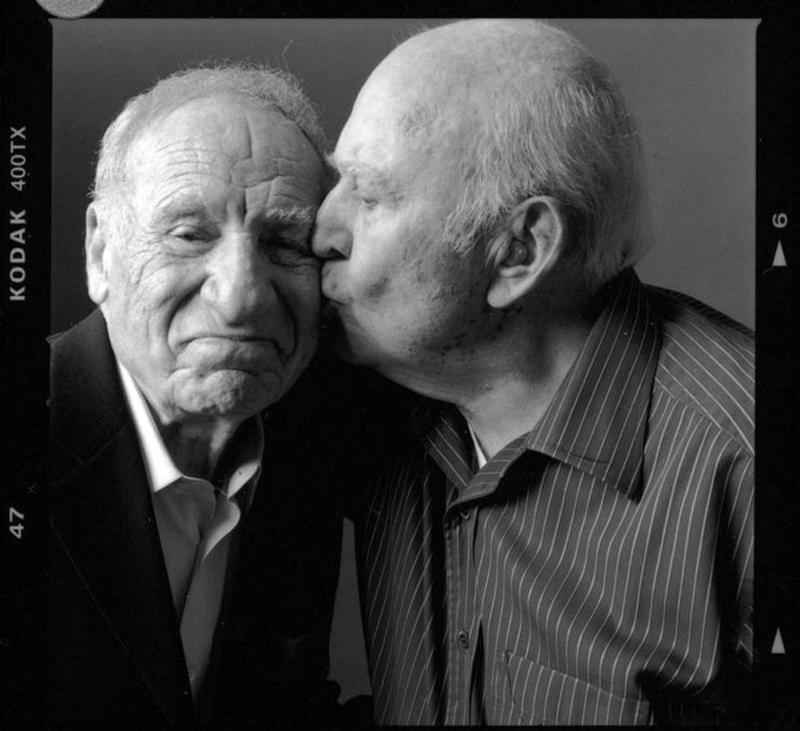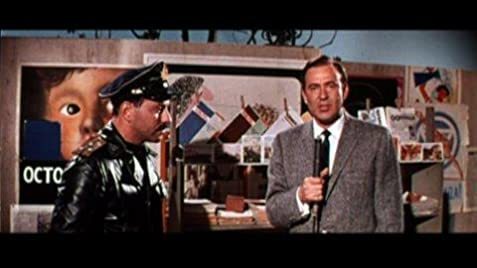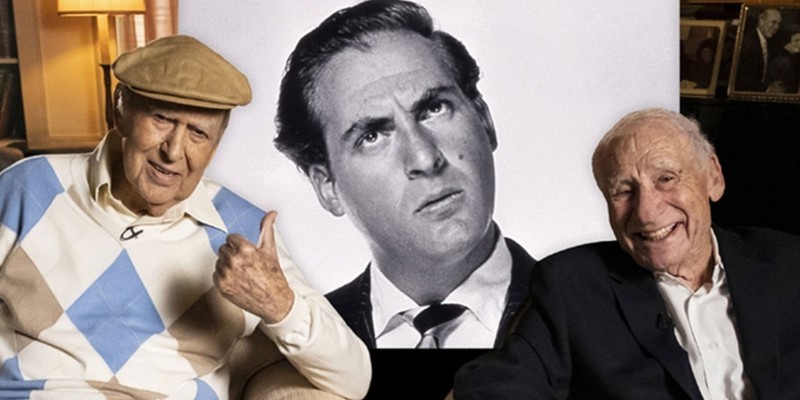
Carl Reiner has died at age 98 after a warm, inviting comedy career as a writer, director, and actor that stretched from the earliest days of television to political barbs on Twitter. He was a talented and sometimes innovative director with a sketch comedy writer's gift for affectionate but telling satire. Doris Day had one of her best roles in "The Thrill of It All," which he co-wrote, with a shrewd take on the absurdities in the worlds of television and advertising along with the comedy and romance. Reiner not only spoofed classic detective noir films in "Dead Men Don't Wear Plaid," which he wrote and directed; he used scenes from the originals, intercutting them so cleverly it looked like Steve Martin was speaking to Humphrey Bogart, Burt Lancaster, and Cary Grant.
Reiner appeared in every known form of entertainment including social media, with more than 380,000 followers on Twitter. Two days before he died, Reiner tweeted a reflection on a life well lived: "Nothing pleases me more than knowing that I have lived the best life possible by having met & marrying the gifted Estelle [Stella] Lebost—who partnered with me in bringing Rob, Annie & Lucas Reiner into to this needy & evolving world." Five days before he appeared on the YouTube series "Dispatches from Quarantine." The week before, he tweeted about two new books he was working on.
Reiner was also a mentor with a gift for nurturing talented newcomers, giving important early roles to stars like Mary Tyler Moore, Dick Van Dyke, and Steve Martin. Reiner directed Martin's first feature film, "The Jerk," and co-wrote and directed Martin's sublime supernatural/sci-fi comedies "All of Me" and "The Man With Two Brains." George Burns was anything but a newcomer when Reiner cast him in a film, but he was then primarily known as Gracie Allen's straight man. Reiner saw him as a leading man, really the leading man, casting him in the title role in "Oh, God!" (with a screenplay co-written by his former colleague Larry Gelbart). Roger Ebert's 3 1/2 star review called it "a treasure of a movie ... lighthearted, satirical, and humorous and (that rarest of qualities) in good taste."

After a stint in the Army during WWII, part of the time in the entertainment unit, Reiner appeared in some Broadway revues, which led to an offer in 1954 to join the writing staff of Sid Caesar's "Your Show of Shows," with future legends Neil Simon, Woody Allen, Larry Gelbart, Selma Diamond, and the man who would become Reiner's closest friend and sometime collaborator, Mel Brooks. Reiner also appeared on the show, mostly as a straight man to provide exposition and contrast to Caesar's wild accents and extravagant physicality.
Caesar's writing room inspired Simon's play Laughter on the 23rd Floor and the film "My Favorite Year." But by far the best work based on writing "Your Show of Shows" was Reiner's 15-Emmy-winning television series, "The Dick Van Dyke Show," one of the most beloved and influential shows of the 1960s. In his "Dispatches from the Quarantine," Reiner called it his best work.
The series was unusual because it gave equal time to the lead character's life as the head writer of a musical comedy variety television show with a temperamental Caesar-like star named Alan Brady, and his life at home with his wife (played by Moore) and son. The original pilot of the show featured Reiner himself in the lead role based on his own life. It flopped. So, he re-wrote and re-cast it, with rubber-limbed Broadway newcomer Van Dyke as Rob Petrie, the writer, Moore as his wife Laura, and Reiner in a number of occasional appearances, most memorably the bombastic Alan Brady. In one of the series' most beloved episodes, Laura appears on a game show and is tricked into revealing that Brady, like Reiner, is bald. Unlike Reiner, Brady was trying to hide it, and when Laura comes to his office to apologize, Reiner has a comic tour-de-force as he sits behind five of his toupees.

"The Dick Van Dyke Show" still holds up beautifully for its wit, and for its depiction of a devoted and sexy marriage (for the early '60s, meaning still double beds on TV in those days, but just look at the way they danced with each other). It had a unique Schrödinger's Cat-type opening credit sequence because we never knew from week to week whether Rob was going to trip over the ottoman. It even dipped into some very early commentary on race in a couple of episodes. In a flashback, Rob became convinced that they had brought the wrong baby home from the hospital. Another couple with a similar name had a baby at the same time and there had been some mix-ups with their flowers and gifts. So, Rob called the other couple and asked them to bring their baby over. When he opened the door, we saw that the other couple was Black, getting the longest laugh in the history of the show. Reiner later said that he wanted the other couple to be gorgeous (they were: future "Mission: Impossible" star Greg Morris and Mimi Dillard) and he insisted on a present-day "button" of a joke at the end of the episode, with Rob saying he still thought the babies must have been switched because the other boy was so accomplished. In a column on the 50th anniversary of that episode, the New York Times' Neil Genzlinger quoted Reiner: “'I was very proud that in the tag I got that little dig in that their kid was in the top of the class and Ritchie was in the bottom.' For Mr. Reiner, that gag was the real victory."
As an actor, Reiner was often cast in everyman roles, like Gidget's father in "Gidget Goes Hawaiian." One of his best was the harried but game Walt Whittaker in "The Russians Are Coming! The Russians Are Coming!", a wild comedy with some pointed commentary about the futility of the Cold War. He played God (literally) in his friend Brooks' "History of the World, Part 1" and he was a courtly con man in the "Ocean's 11" series opposite George Clooney and Brad Pitt. Reiner and Brooks created a classic sketch comedy duo with Brooks as "The 2000 Year Old Man" and Reiner as a reporter asking him improvised questions, which was featured on television and on five comedy albums, one a Grammy winner for Best Spoken Comedy and another added to the Library of Congress' National Recording Registry. Reiner appeared on the animated series "The Cleveland Show," which also gave him his last writing credit, for an episode about a talent show titled, of course, "Your Show of Shows." And he played an animated character in 2020's Pixar short "Forky Asks A Question: What is Love?" with Brooks, Betty White, and Carol Burnett. His animal character's name: Carl Reineroceros.

Every evening, Brooks would come over to his home and they would watch "Jeopardy" and movies together. They were photographed just before his death, both wearing Black Lives Matter t-shirts. His son, director Rob Reiner, spoke for many when he tweeted, "He was my guiding light."
Reiner received comedy's highest honor, the Mark Twain Prize for American Humor, in 2000, the third year the prize was awarded. Perhaps Reiner's most personal work was Enter Laughing, based on his autobiographical novel about his early years trying to break into show business, later a play, a musical, a movie, and, most recently a play again, revived off-Broadway in 2019. The title comes from a mistake the Reiner character makes in an audition, reading the stage direction aloud. But it was also about his take on the world, and it was an exhortation to all of us to see the world that way, too.
Nell Minow is the Contributing Editor at RogerEbert.com.





